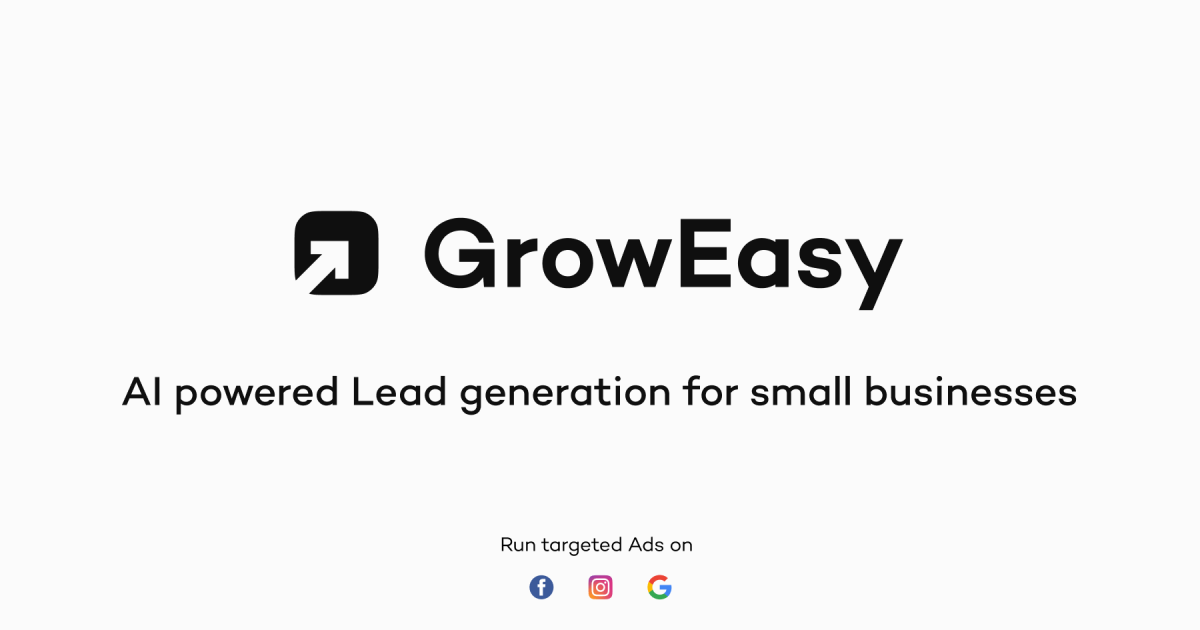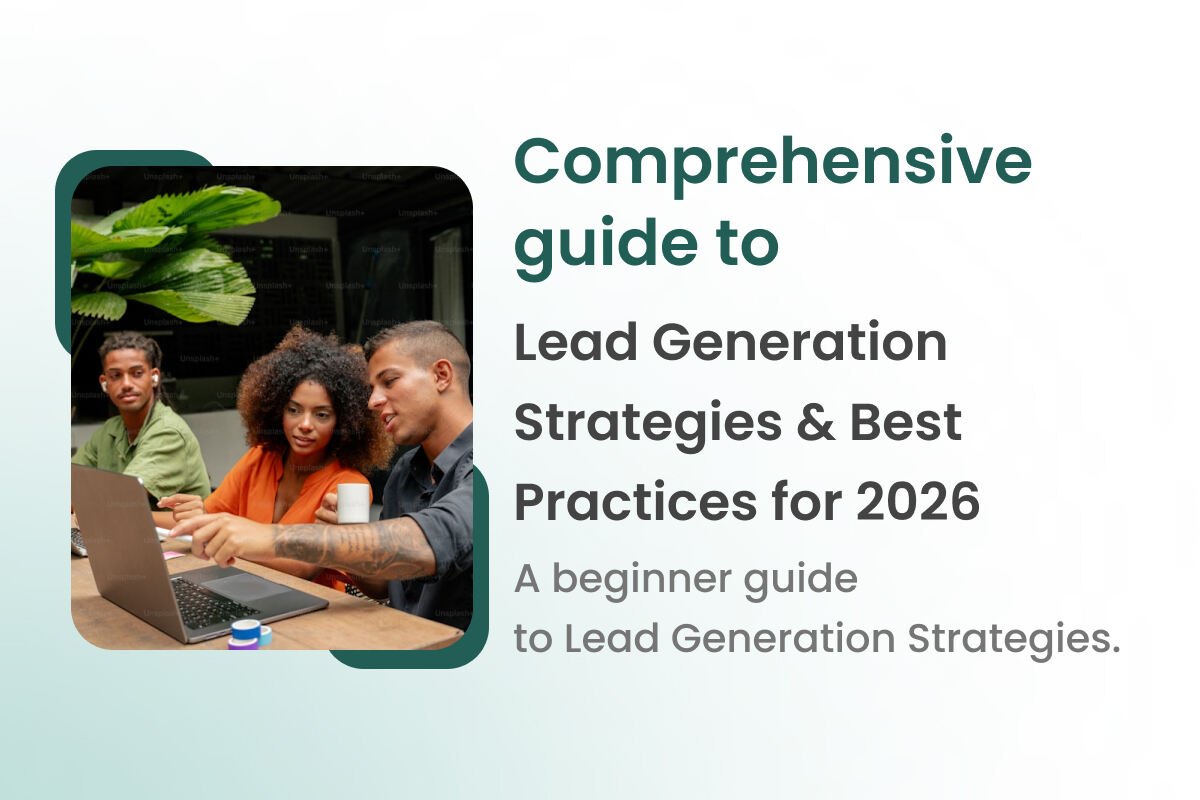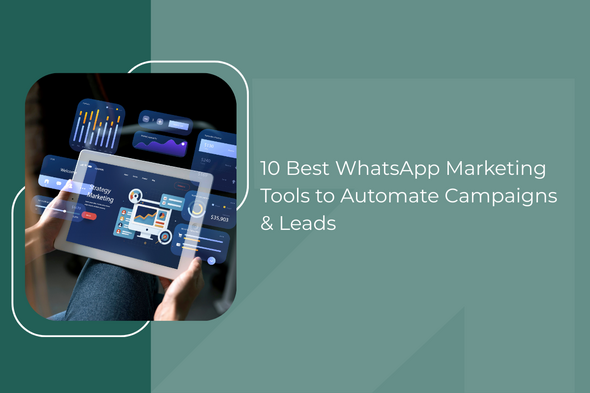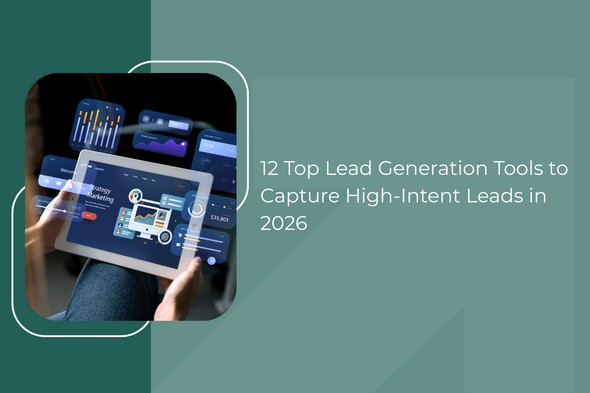Tired of guessing games? The digital marketing landscape is shifting incredibly fast! You absolutely need to update your lead generation strategies now. In 2026, AI-driven personalization and automation are paramount. These smart tools help marketers target high-intent prospects precisely. We must combine smart data analytics with real-time engagement to succeed.
Key Highlights
- In 2026, AI-driven personalization and automation dominate lead generation, enabling marketers to target high-intent prospects with smart data analytics and real-time engagement.
- Content-led SEO, high-intent lead form ads on LinkedIn, and multi-channel automation triggered by user behavior enhance lead quality and nurture prospects efficiently.
- Hyper-personalized content marketing aligned with buyer intent, real-time behavioral triggers, and integrated AI-powered lead scoring optimize conversion rates while reducing manual effort.
- Inbound marketing strategies focus on creating valuable, educational content and personalized email drip campaigns to attract and nurture leads sustainably over time.
- Optimizing the sales funnel through tailored content, A/B testing, behavioral triggers, and lead segmentation boosts conversion rates and maximizes ROI.
- SMS advertising offers high engagement with response rates up to 45%, using personalized, concise messages and strategic timing to convert leads effectively.
Understanding Lead Generation in the Context of Digital Marketing
Lead generation is the crucial starting point for digital marketing success. It focuses on converting online interest into actionable business prospects. You must attract the right audience. This is done through targeted content, strong SEO, and personalized outreach.
The simple truth is effective lead generation integrates multiple channels.
Key components you must manage include:
- Attracting your ideal audience.
- Using targeted content and SEO.
- Integrating social media, email, and paid ads.
- Nurturing and qualifying prospects consistently.
By aligning marketing strategies with buyer intent, you optimize your sales funnel. This drives sustainable growth in today’s competitive digital world.
The Role of Quality Leads
Businesses must prioritize getting high-quality leads. High-intent lead form ads on platforms like LinkedIn enhance lead quality. AI-powered lead scoring helps you focus only on prospects most likely to convert.
Quick Fact: AI optimization led to an increase of +16.8% in conversions and +24.5% in engagement rates for continuously optimized campaigns.
The Current Landscape of Lead Generation Strategies in 2026
What does 2026 look like? It’s all about smart tech. Lead generation hinges on three core principles:
- AI-powered personalization.
- Intent-based targeting.
- Seamless automation.
Marketers now focus on hyper-personalized content. They use event-triggered workflows. This engages prospects precisely when their interest is highest.
Key tactics defining the 2026 landscape include:
- AI-driven lead scoring.
- Behavioral triggers.
- Cross-channel orchestration.
Here’s how it works: Multi-channel integration combines social, email, and paid ads. This ensures broader reach and efficient lead nurturing. Account-based marketing (ABM) refines the focus on high-value B2B prospects. Real-time analytics enable continuous optimization for better ROI.
Why Automation is Essential
Trying to do lead generation manually is simply overwhelming. You have too many tools and too little time. Automation removes this stress. Systems work round the clock for 24/7 optimization to refine campaigns automatically. This boosts lead quality by ensuring smart follow-ups are triggered.
Top Lead Generation Strategies to Implement in 2026
Ready to implement? Leverage AI-powered personalization and multi-channel automation now. This captures and nurtures leads effectively. Prioritize these core lead generation strategies:
- Hyper-targeted content marketing aligned with buyer intent.
- Real-time behavioral triggers for timely engagement.
- Integrated lead scoring to focus on high-quality prospects.
For example, AI tools can dynamically tailor landing pages. They can also automate follow-ups based on specific user actions. This approach maximizes conversion rates while reducing your manual effort.
Leveraging Inbound Marketing for Sustainable Lead Growth
Let's talk about inbound marketing. It builds lasting lead growth. It attracts prospects using valuable content, not interruptive ads. Focus on creating educational blogs and SEO-optimized resources. Use personalized email drip campaigns to nurture leads gradually.
Here’s how it works:
- Inbound content gently pulls ideal customers into your sales funnel.
- This approach fosters trust and engagement over time.
- Tactics include consistent content creation and personalized user experiences.
- It ensures a steady flow of leads aligned with buyer intent.
Optimizing the Sales Funnel for Maximum Lead Conversion
You must optimize every sales funnel stage. This is critical for boosting your lead conversion rates. You must tailor content to match buyer intent. Continuous A/B testing refines landing pages and Calls-to-Action (CTAs).
Follow these steps for sales funnel optimization:
- Tailor Content: Match content precisely to buyer intent (awareness, consideration, decision stages).
- A/B Test: Continuously refine landing pages and CTAs for better performance.
- Implement Triggers: Use behavioral triggers for timely prospect engagement.
- Segment Leads: Use data-driven segmentation for personalized follow-ups and messaging.
- Analyze Performance: Continuously analyze funnel performance to immediately adjust strategies.
Visual Summary: Sales Funnel Stages & Content Alignment
| Funnel Stage | Buyer Intent | Content Focus |
| Awareness (ToFu) | Problem recognition | Educational blogs, SEO-optimized resources, industry reports |
| Consideration (MoFu) | Solution research | Personalized email drips, white papers, case studies |
| Decision (BoFu) | Final evaluation | Testimonials, exclusive discounts, personalized demos |
Utilizing SMS Advertising to Engage and Convert Leads
SMS advertising is your secret direct channel. It delivers outstanding engagement. It achieves response rates up to 45%. This is a direct, immediate, and effective channel.
Key steps for maximizing SMS advertising impact:
- Personalize concise messages.
- Include clear calls to action (CTAs).
- Time messages strategically.
- Automate messages based on user behavior.
- Integrate SMS with your CRM for seamless follow-up.
This approach boosts conversions by reaching prospects directly and promptly. It is useful for lead qualification and appointment setting.
Quick Fact: SMS advertising delivers incredible response rates of up to 45%.
Implementing Integrated Marketing Campaigns for Cohesive Lead Generation
Integrated marketing campaigns pull everything together. They unify multiple channels to create a consistent brand message. Combining email, social media, SEO, and paid ads leverages cross-channel synergy.
Key benefits of integration:
- Consistent messaging across all touchpoints.
- Enhanced customer trust and credibility.
- Optimized resource use and campaign efficiency.
For example, syncing email and social ads can nurture leads more effectively. This drives higher conversion rates and improves ROI.
Specialized Approaches for B2B Lead Generation
B2B lead generation needs surgical precision. It combines intense data-driven targeting with personalized outreach.
Specialized B2B lead generation tactics include:
- AI-powered Sales Development Representatives (AI SDRs): Used for scalable prospect engagement.
- Account-Based Marketing (ABM): Focuses on high-value accounts with tailored messaging.
- B2B appointment setting: Converts qualified leads directly into scheduled meetings.
These approaches ensure quality lead acquisition and efficient pipeline management.
Comparison Table: Strategy Focus (B2B vs B2C)
| Characteristic | B2B (Business to Business) | B2C (Business to Consumer) |
| Primary Goal | High-value account acquisition, Relationship Building | Volume-based sales, Immediate purchase drive |
| Key Strategies | ABM, AI SDRs, Appointment Setting | Dynamic landing pages, SMS offers, E-commerce optimization |
| Purchase Cycle | Longer, multi-stakeholder approval | Shorter, individual/emotional decision-making |
| Targeting Precision | Extremely high, focus on roles/companies | Broad segmentation, behavioral and demographic triggers |
Essential Lead Generation Tools and Technologies for 2026
AI-powered automation and data enrichment tools are absolutely crucial in 2026. These lead generation tools centralize lead management and automate nurturing.
Here’s how it works:
- Platforms like UpLead guarantee high data accuracy (95%).
- Salesforce Marketing Cloud orchestrates multi-channel campaigns.
- HubSpot centralizes management and automates nurturing.
You should invest in:
- AI-driven lead scoring and personalization.
- Multi-channel marketing automation.
- Real-time data enrichment and visitor identification.
Micro Visual Summary: AI Campaign Launch (Example: GrowEasy)
| Step | Action | Benefit |
| 1. | Tell us about your business and marketing goals. | Clear objective setting. |
| 2. | AI creates ad copies, creatives, and budget for you. | Eliminates manual design and copywriting. |
| 3. | Launch across Google, Meta, YouTube, and Facebook. | Achieve 5-minute campaign launch efficiency. |
| 4. | AI WhatsApp agent talks to and qualifies leads. | Improved lead quality and funnel efficiency. |
These technologies streamline capture, qualification, and engagement.
Best Practices for Lead Nurturing and Conversion Optimization
Lead nurturing is about being smart and timely. It combines personalized content with timely engagement. This approach builds trust and shortens your sales cycles.
Follow these steps for powerful lead nurturing:
- Deliver Relevant Content: Ensure content aligns with the buyer’s journey stage.
- Automate Follow-ups: Set up automation triggered by specific user behavior.
- Use Data Segmentation: Tailor messaging precisely based on data analysis.
- Continuously Test: Optimize landing pages and CTAs regularly.
The simple truth is prospects must smoothly progress through your conversion funnel. This maximizes ROI without overwhelming your team. AI is key for hyper-personalized content marketing. Platforms like GrowEasy even offer Vernacular Ad support to reach diverse regional audiences.
Measuring and Analyzing Lead Generation Success
You have to track your performance. Tracking key metrics is essential for evaluating effectiveness. You must focus on measurable KPIs.
Key metrics you must track:
- Conversion Rate: The ratio of sales to leads generated.
- Cost Per Lead (CPL): Used to compare performance across marketing channels.
- Lead Quality: Measured by the MQL to SQL conversion ratio.
- Cost Per Sale: Assesses overall profitability of campaigns.
Regularly analyze these KPIs. If conversion rates are low, improve nurturing workflows immediately. This maximizes lead-to-sale outcomes and boosts ROI efficiently.
Preparing for Future Trends in Lead Generation Beyond 2026
What’s next? Future lead generation success will hinge on specific competencies. You must master AI orchestration, ethical governance, and hybrid human-AI collaboration.
Key focus areas for the future:
- Ethical AI deployment and transparency.
- Integrating emerging tech like Edge AI and vibe coding.
- Strengthening sales-marketing alignment using data.
- Investing in modular AI models to maintain agility.
Proactively adopting these trends guarantees sustainable lead growth. This provides a necessary competitive advantage beyond 2026. For regions like India, vernacular capability (like GrowEasy offers) is a durable competitive advantage.
How GrowEasy Can Help with Lead Generation

At GrowEasy, we specialize in empowering businesses with tailored lead generation solutions. Our expertise in digital marketing, SEO, content creation, and social media advertising can help you attract and engage prospects effectively. We offer comprehensive services, including website optimization, email marketing, PPC advertising, and more.
By partnering with GrowEasy, you can leverage our proven strategies and tools to drive high-quality leads and achieve your business goals. Contact us today to learn how we can support your lead generation efforts and help your business thrive.
Conclusion
Effective lead generation is essential for business growth and success. By implementing these strategies—optimizing your website, creating high-quality content, leveraging social media, running social media ads, implementing email marketing, utilizing PPC advertising, offering lead magnets, using chatbots, optimizing landing pages, leveraging influencer marketing, hosting webinars, leveraging Google My Business, and delegating to chatbots—you can build a robust pipeline of qualified leads.
FAQs
Q1: What is lead generation in digital marketing?
Lead generation in digital marketing involves attracting and converting prospects into potential customers through various online strategies.
Q2: Why is a user-friendly website important for lead generation?
A user-friendly website provides clear information and easy navigation, making it easier for visitors to find what they need and take action.
Q3: How can social media help in lead generation?
Social media platforms allow businesses to engage with prospects, share valuable content, and run targeted ads to reach a broader audience.
Q4: What are some effective content marketing ideas?
Effective content ideas include how-to guides, industry insights, case studies, webinars, and downloadable resources.
Q5: How does GrowEasy support lead generation?
GrowEasy helps in tailored lead generation by leveraging advanced AI tools to streamline the entire process. It allows you to create targeted ad campaigns on Facebook, Instagram, and Google in just a few minutes. The AI handles everything from ad creative generation to audience targeting.
Easy and fast setup
Marketing Doesn't Have to Be Hard. Let AI Do the Work.
Start getting leads in 5 minutes – no marketing team needed.
Start Now






